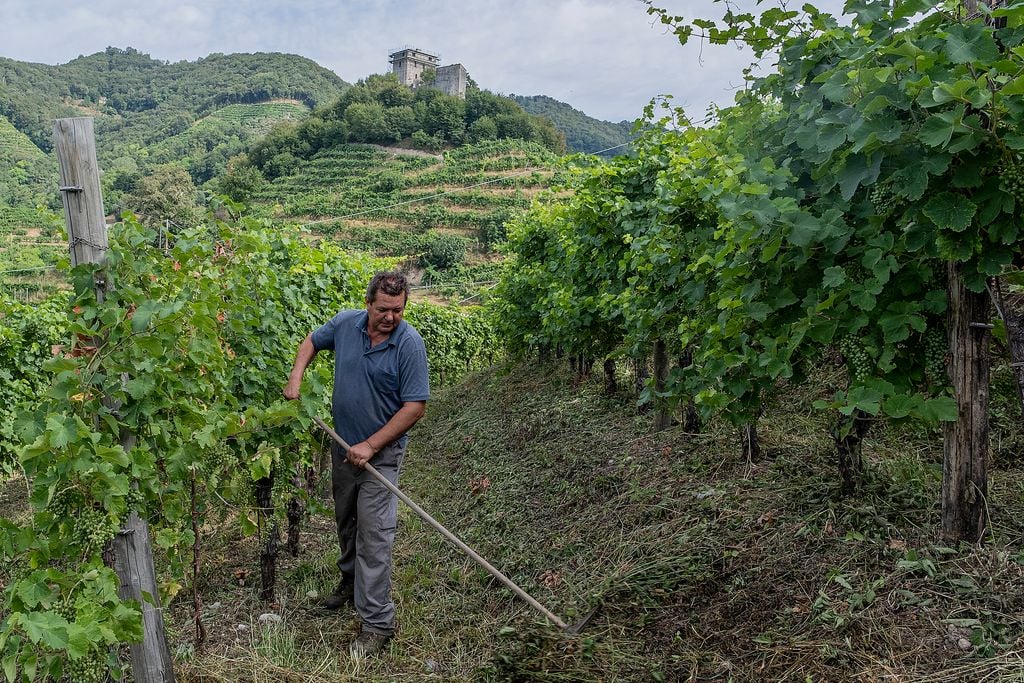Bad news for office parties
Experts have warned Prosecco drinkers that the much-loved bottle of fizz could soon become obsolete.
Scientists have predicted that some of the world’s most popular wines, such as Prosecco, could no longer exist as the cultures of the communities that produce them disappear.
Traditionally, the harvesting of grapes on steep slopes is done without the use of machines or mechanised tools, which makes this viticulture very difficult for an untrained person.
But climate change is threatening to disrupt the very specific and fragile climates these areas need to produce their distinctive grapes.
Researchers are therefore urging scientists and farmers to collaborate to try and work out a way to protect their centuries-old traditions.
Many areas that follow these traditional harvesting methods, such as the Champagne region of France and the Middle Rhine in Germany, have been designated as UNESCO world heritage sites.
Prosecco is an Italian white white produced in a region spanning the provinces in the Veneto and Friuli Venezia Giulia regions and is named after the village of the same name near the city of Trieste.
In a paper published last month in the journal iScience, scientists raised their concerns around soil degradation and drought, which are the most prominent risks to Prosecco production brought on by climate change.
In particular it is “heroic viticulture” sites that are most at risk. These are vineyards that have a slope steeper than 30 percent, are located on small islands or at an altitude higher than 500 metres above sea level.
The Prosecco Hills of Conegliano and Valdobbiadene fall into this category.

Extreme weather brought on by climate change, such as intense and out-of-season rain, could have a disastrous effect on the unique soils of the area, potentially triggering “slope failures.”
Equally, prolonged periods of drought will be bad news for the Prosecco vineyards.
Researchers from the University of Padova also warned of the threat posed by the “rural exodus and a gradual abandonment of mountain landscapes” over the last five decades.
They explained: “The new generation is not attracted to continue working under extreme conditions if economic benefits are insignificant.”
The researchers also warned that the technological modernisation of society is “degrading” the cultural heritage of generations who lived before.
Lead author Dr Paolo Tarolli and his co-writers wrote: “The risk is not only losing an agricultural product or seeing a landscape change, negatively impacting the local economy.
“The risk is losing entire communities’ history and their cultural roots.”
The researchers did offer some hope though, saying that the “key to success lies in combining the traditional knowledge of winemakers with innovation and scientific rigor.”
They added: “In this way, farms can work closely with scientists to optimise investments for a more functional, sustainable, and safe agricultural landscape – a winning alliance to face these diverse natural and anthropogenic challenges.”
Related links:
‘Beer goggles’ study finds alcohol does not make people seem better looking





















































